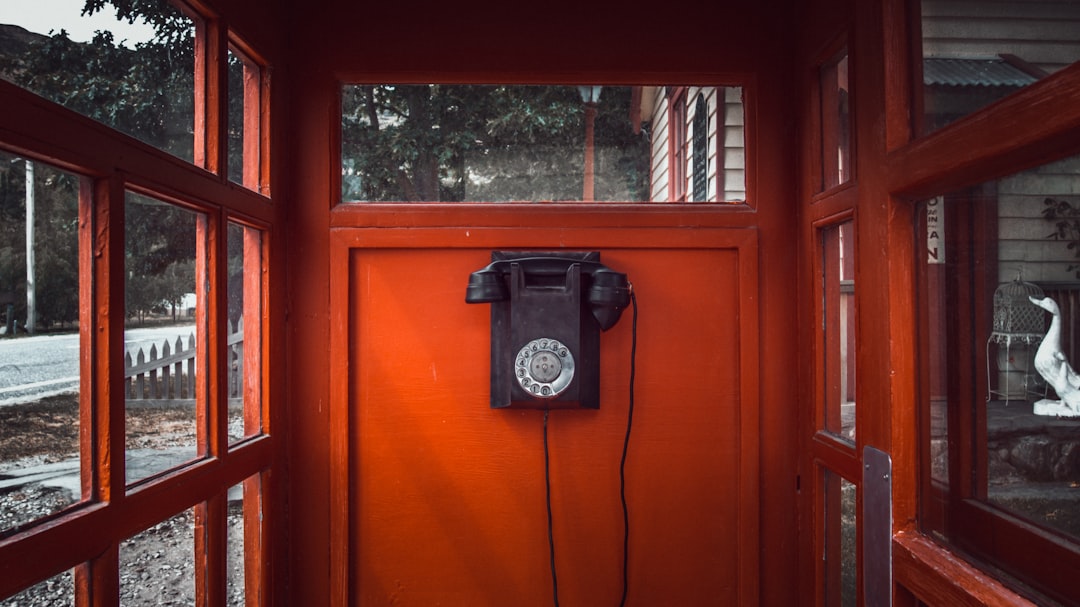Spam calls are a significant problem in West Virginia, but residents and businesses can combat this issue by understanding local laws and engaging specialized legal help. The Telephone Consumer Protection Act (TCPA) offers strong protections, and experienced spam call law firms or lawyers in West Virginia provide guidance on stopping unwanted calls. By studying case studies, these professionals tailor strategies and represent clients effectively. Engaging with a reputable spam call lawyer is crucial to protecting your rights, blocking spam, and seeking damages under TCPA laws in West Virginia. Community education and legal action together create a robust defense against spam calls, ensuring peace of mind for West Virginians.
In the digital age, spam calls have become a persistent nuisance in West Virginia communities. Understanding and combating this issue requires a localized approach, leveraging case studies to navigate complex legal landscapes. This article explores how local case studies can be instrumental in developing effective legal strategies against spam calls. We delve into relevant laws, suggest finding specialized lawyers (Spam Call law firm West Virginia, Spam call lawyers West Virginia), and offer community-centric solutions for a quieter, more peaceful West Virginia (How to Stop Spam Calls West Virginia).
Understanding Spam Calls: A West Virginia Perspective
Spam calls are a pervasive issue in West Virginia, much like elsewhere across the country. These unwanted phone communications, often promoting products or services, can be a nuisance and even pose privacy risks for residents. Understanding the scope of the problem is crucial to addressing it effectively. In West Virginia, where close-knit communities thrive, spam calls disrupt not just individuals but also local businesses and organizations. The sheer volume of these calls can be overwhelming, making it difficult for people to distinguish legitimate communications from harassing ones.
Navigating the legal landscape surrounding spam calls in West Virginia involves familiarizing oneself with the Telephone Consumer Protection Act (TCPA). A Spam Call law firm or lawyers specializing in TCPA in West Virginia can provide invaluable guidance on how to stop spam calls. By understanding both the local context and the applicable laws, residents and businesses can take proactive steps to mitigate the impact of spam calls, ensuring a safer and more peaceful communication environment.
The Role of Local Case Studies in Legal Strategies
Local case studies play a pivotal role in crafting effective legal strategies to combat spam calls in West Virginia. By examining real-world examples within the state, lawyers and their clients can gain valuable insights into the types of spam call activities that have been successfully addressed or challenged in court. These case studies provide a practical understanding of the laws, such as the Telephone Consumer Protection Act (TCPA), and how they are interpreted and enforced locally.
For instance, a local case study might highlight a successful lawsuit filed by a Spam Call law firm West Virginia against a company making unsolicited robocalls, resulting in substantial damages and a precedent-setting ruling. Such insights enable legal teams to develop tailored strategies, argue cases more persuasively, and navigate the complexities of spam call regulations in West Virginia. Engaging with local case studies allows for a more nuanced approach when representing clients seeking relief from nuisance calls, ultimately contributing to more favorable outcomes under the state’s Spam Call laws.
Navigating Spam Call Laws in West Virginia
In West Virginia, navigating spam call laws is essential to understanding how to stop unwanted phone calls. The Telephone Consumer Protection Act (TCPA) provides robust protections for consumers against abusive telephone marketing practices. A spam call law firm or experienced lawyers specializing in TCPA cases can guide individuals on their rights and available legal options. If you’re facing a deluge of spam calls, the first step is to identify the source. Local case studies can offer valuable insights into how similar situations have been handled in West Virginia, providing a roadmap for effective action against spam call perpetrators.
West Virginia residents should be aware that unauthorized automated or prerecorded calls are illegal without prior express consent. A lawyer for TCPA in West Virginia can assist in drafting cease and desist letters, filing complaints with regulatory agencies, or even pursuing legal action to stop the calls and seek damages. By understanding the local spam call laws and leveraging case studies, individuals can take proactive measures to protect their privacy and peace of mind.
Finding the Right Lawyer for TCPA Cases
When navigating the complexities of spam calls in West Virginia, finding a qualified and experienced lawyer is paramount to ensuring your rights are protected. The Telephone Consumer Protection Act (TCPA) is a robust piece of legislation designed to curb nuisance calls, but understanding and invoking these protections requires legal expertise. Look for a spam call law firm or lawyer for TCPA West Virginia with a proven track record in handling similar cases.
Expertise in spam call lawyers West Virginia is key, as these attorneys specialize in navigating the nuances of the TCPA. They can help you determine if your case qualifies for legal action and guide you through the process of holding offenders accountable. A reputable spam call law firm West Virginia will possess in-depth knowledge of the local legal landscape, enabling them to offer tailored strategies on how to stop spam calls West Virginia effectively while maximizing potential compensation.
Effective Solutions to Stop Spam Calls in WV Communities
In West Virginia, where spam calls have become a persistent nuisance, communities are increasingly seeking effective solutions to combat this issue. Beyond do-not-call lists and blocking apps, there are several strategic approaches that can make a significant difference in reducing unwanted phone communications. One proven method is to educate residents on the laws governing spam calls, such as the Telephone Consumer Protection Act (TCPA). By raising awareness about their rights and legal recourse, West Virginia communities can empower individuals to take proactive measures against spammers.
For instance, consulting with a reputable spam call law firm or spam call lawyers in West Virginia can provide valuable insights into navigating the TCPA. These legal experts can offer tailored advice on blocking strategies, help draft cease-and-desist letters, and even represent residents in court if necessary. By combining community education and legal action, West Virginians can create a more robust defense against spam calls, ensuring peace of mind and a safer digital environment for all.






